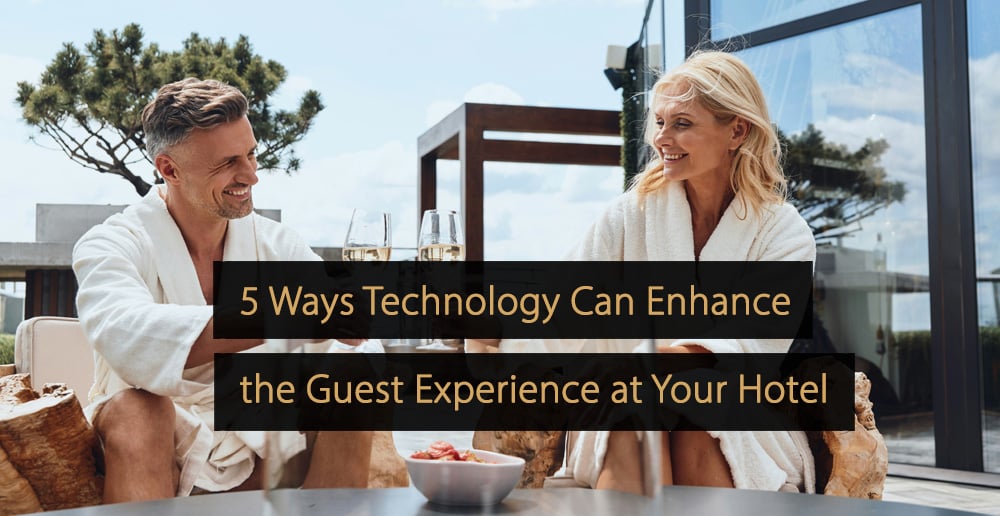Hi, I'm Rebecca and I'll be your digital host for the blog post by RevFine about the 5 Ways Technology Can Enhance the Guest Experience at Your Hotel.
With 40 percent of Americans traveling more in 2024, the hospitality industry has seen a significant surge in demand. This uptick in travel presents a golden opportunity for hotels to increase revenue, but to capitalize on it, they must differentiate themselves in a crowded market. In this discussion, you'll learn how hotels can use technology to offer a better guest experience. From personalized offers to multi-channel communications, these strategies will help you create unforgettable stays, foster guest loyalty, and boost your hotel's bottom line.
Let's explore five ways hotels can leverage technology to enhance the guest experience.
Firstly, personalization is key. Increasingly, the world's largest and most successful hotels are using data to send personalized offers to drive ancillary revenue and enhance the guest experience. This aligns with the evolution of travelers into savvy experience-seekers who expect solutions tailored to their individual preferences and needs. In an era where one-size-fits-all solutions are no longer effective, personalization is now a key differentiator. Personalized offers not only enhance the guest experience but also drive conversions and revenue opportunities. Platforms like Plusgrade make it easy to use guest data to send customized offers such as room upgrades, pre-reserved dinners, flexible check-ins and check-outs, and more. By leveraging data, analytics, and guest profiling, hotels can determine what type of offer will appeal to each guest, making personalized offers more efficient and cost-effective.
Secondly, perfecting the timing of ancillary offers is crucial. While many hotels focus their offers on the critical few days before a guest's arrival, most travelers begin planning their trips at least two months in advance. Understanding and capitalizing on this longer timeline means more revenue opportunities and better experiences for guests. Hotel owners and operators should engage guests at various stages of their travel planning journey. Engaging guests shortly after booking and several weeks before their scheduled stay can be highly effective. Following up promptly with guests who express interest in upgrade options or other special amenities but do not immediately convert is also important. A test conducted by a hospitality company showed that an abandoned cart email within a few hours of the loyalty program member leaving the purchase page drove a 142 percent increase in revenue per email sent. This demonstrates the power of timeliness in driving conversions and the value of travel technology solutions in optimizing the timing of ancillary offers.
Thirdly, meeting guests where they are is essential. The right offer at the right time is important, but there’s a third piece to consider: channels. In today's always-on digital world, hotels have more ways than ever to reach guests, and every guest has their own communication preferences. The best way to ensure maximum reach is to employ a multi-channel approach. Sending offers through a mix of email, SMS, landing pages, WhatsApp, and social media channels will help maximize revenue opportunities. For example, sending a personalized SMS with an upgrade offer resulted in a 30 percent revenue increase. Similarly, an airline company saw a 2.5 times surge in upgrade offers submitted by strategically moving the upgrade offer above the fold on a landing page. These examples show how diversifying your communication strategy can have an immediate positive impact on engagement and revenue. Leveraging multiple communication channels ensures that your message resonates with guests wherever they are on their travel journey, driving ancillary revenue and creating a richer overall guest experience.
We could go on, but you got the point. Let's collab and make some noise.
